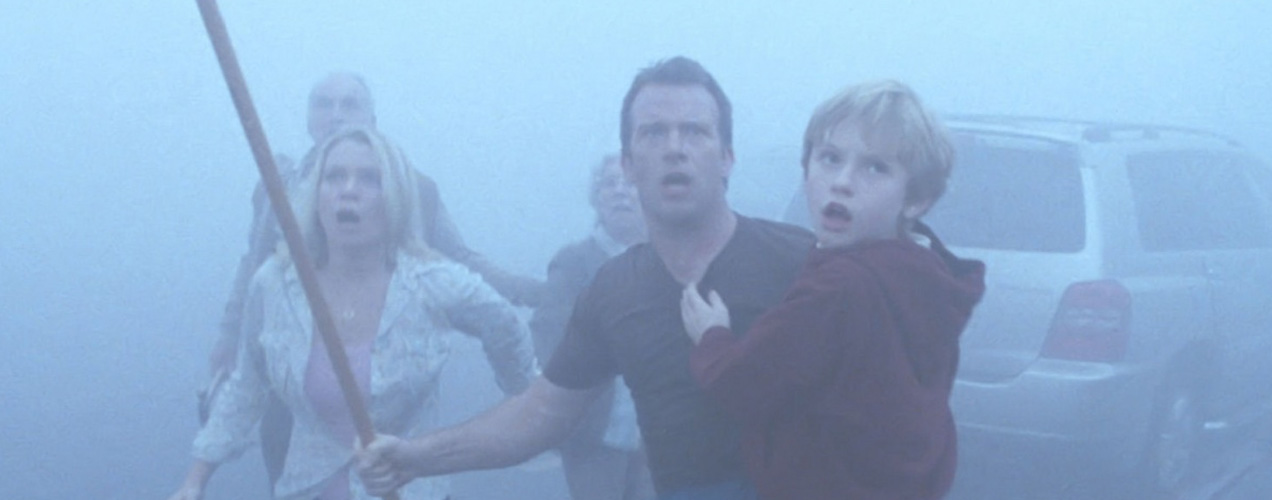2007 / Frank Durabont > I assume this was meant to be some sort of a conceit upon humanity, but it’s effectively a well-directed, technically apt version of an average Twilight Zone episode. The fact that it’s executed well doesn’t excuse its weak foundation and an ending that’s downright shameless. Apparently it deviates slightly from the ambiguous version that Stephen King originally penned, but it does make me wonder just how much better a film it would have been.
Category Archives: 2.0
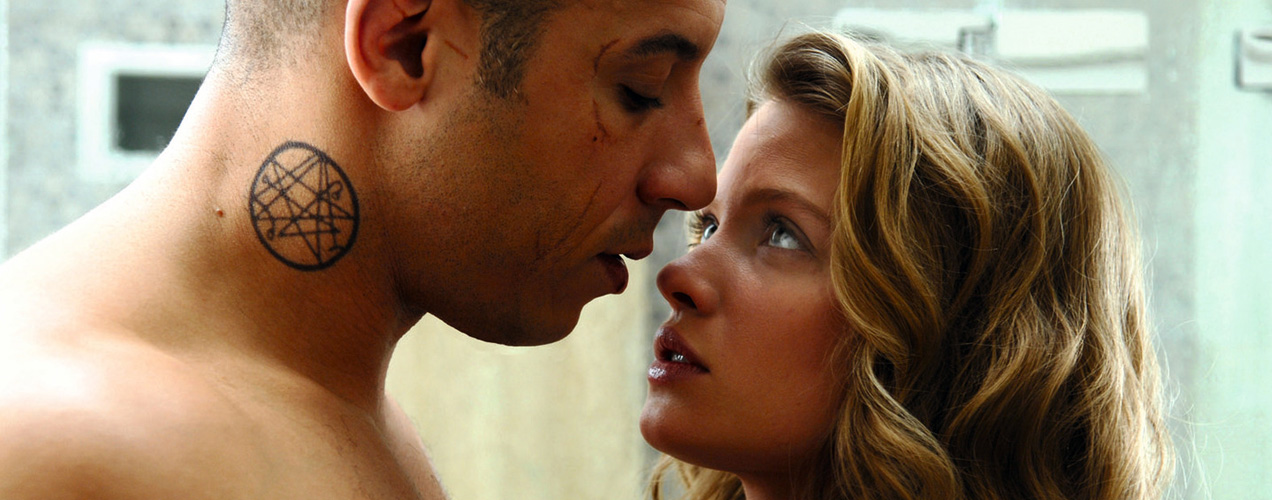
Babylon A.D.
2008 / Matthieu Kassovitz > I should have guessed when Kassovitz himself denounced the final product, but I figured it was worth a shot. I’m generally a sucker for apocalyptic near-futures, and this one seemed to have a lot of the typical plot points—military black markets, religious fanatics, a savior or two. But Fox’s interference during the filming process looks more than obvious. Considering what Kassovitz was capable of in La Haine, arguably a better version of Boyz n the Hood, this is a mess beyond belief. The story jumps, becomes incoherent, then suddenly has a wonderfully poignant (at least in its own, deluded mind) finale. Supposedly there’s a longer cut out there somewhere, but the director himself has said that he didn’t even get to film his vision. So, in effect, any alternative cut out there ought to be rendered useless.

Dream
 2008 / Kim Ki-duk > Again, Kim further solidifies his rank as the most polarizing director in Korean cinema. He’s usually hit or miss, and sadly, even with the presence of Odagiri Jo, Dream comes off as a wasted opportunity. Sure, the movie is intended to be a bit of a puzzle, and nothing should have been taken at face value, but that alone doesn’t make it better. In fact, the film’s progression simply frustrates with its so-called cleverness. In some ways, this is a deconstructed version of Mulholland Drive, which is a film that you can’t help but respect even if you don’t like it. But in its deconstruction, Kim has dumbed things down to the point where there’s no meat on the bone, that the audience continually gnaws upon empty illusions. The only thing of real note happens to be Lee Na-yeong’s dramatic turn that can’t help but surprise in response to her previous outings (e.g. Please Teach Me English).
2008 / Kim Ki-duk > Again, Kim further solidifies his rank as the most polarizing director in Korean cinema. He’s usually hit or miss, and sadly, even with the presence of Odagiri Jo, Dream comes off as a wasted opportunity. Sure, the movie is intended to be a bit of a puzzle, and nothing should have been taken at face value, but that alone doesn’t make it better. In fact, the film’s progression simply frustrates with its so-called cleverness. In some ways, this is a deconstructed version of Mulholland Drive, which is a film that you can’t help but respect even if you don’t like it. But in its deconstruction, Kim has dumbed things down to the point where there’s no meat on the bone, that the audience continually gnaws upon empty illusions. The only thing of real note happens to be Lee Na-yeong’s dramatic turn that can’t help but surprise in response to her previous outings (e.g. Please Teach Me English).

Blindness
2008 / Fernando Meirelles > Maybe this is another one of those novels that’s unadaptable, because Meirelles’ vision is nothing short of torture filled with the kind of stereotyped, polarizing “lessons” that makes decent movies into ham-handed atrocities. Even as it is technically proficient, with fine acting performances from Julianne Moore and Japan’s Yoshino Kimura in her English-speaking debut, Blindness still comes off as a chore. The film’s simply not enjoyable, and when the credits roll, the satisfaction borne of the ending is significantly underwhelming considering the emotional upheavals experienced earlier.
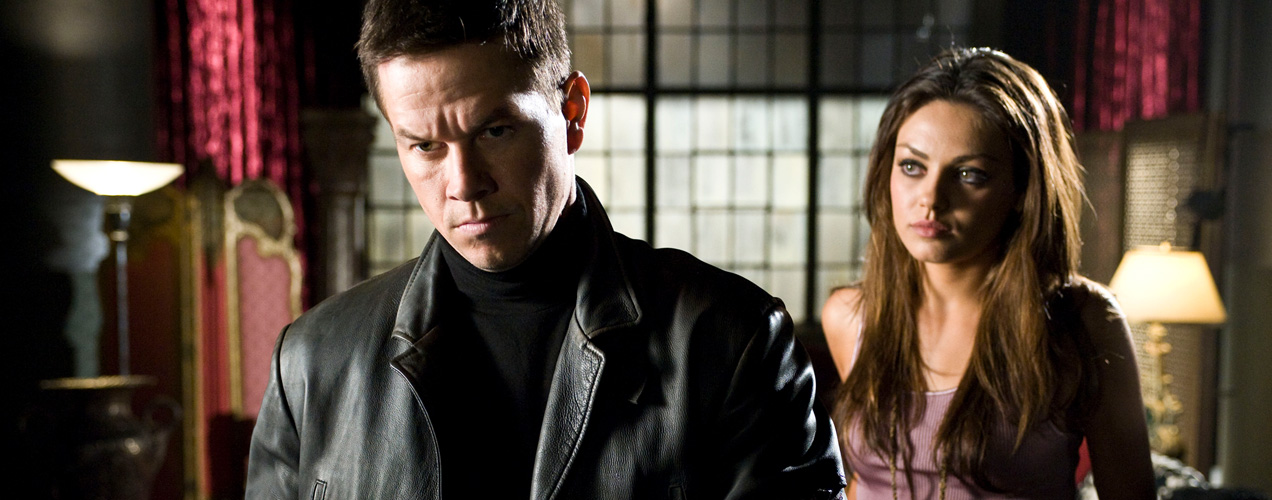
Max Payne
2008 / John Moore > Confessions first: I loved the video game when it was first released. I loved the story, and I loved the gameplay. But ironically enough, I couldn’t remember much of the story (besides the obvious wife and child getting murdered). So, while watching the movie, I had no idea that they were actually being surprisingly faithful to the whole thing. Which makes me ask: Did this story simply make more sense as a video game? Because as a movie, this was predictable and a huge waste of potentially awesome bullet-time sequences. In fact, there’s nothing to indicate the Max Payne action-style in the whole first-half. Worst of all, the casting is atrocious. Mila Kunis is wonderful in Forgetting Sarah Marshall, but not so here. Mark Wahlberg? He’s no Max Payne, let’s face it. And this movie, it doesn’t do the game justice.
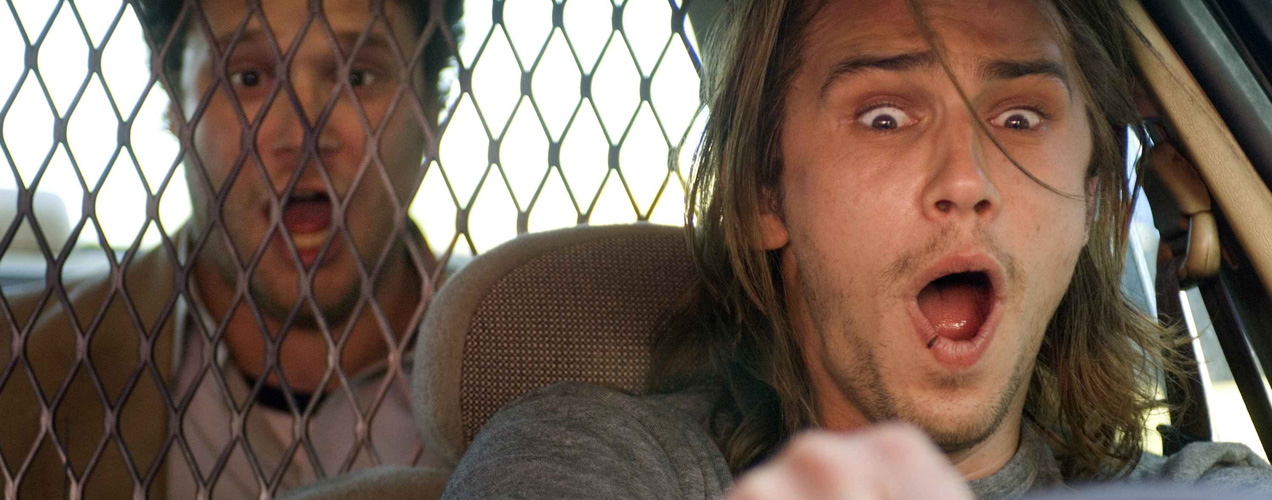
Pineapple Express
2008 / David Gordon Green > I can’t help but say how surprised I am at how much I couldn’t stand this movie. I barely laughed at its predictable jokes and had trouble cringing through its terrible story. Sure, maybe the focus of the film wasn’t its story, but rather how silly things get when toked up. But there’s a difference between credulous silly and insulting silly, and this is pretty easily in the latter territory. An incredible mishap and a terrible introduction to the works of Green. I just wanted this to end, but it dragged on forever.
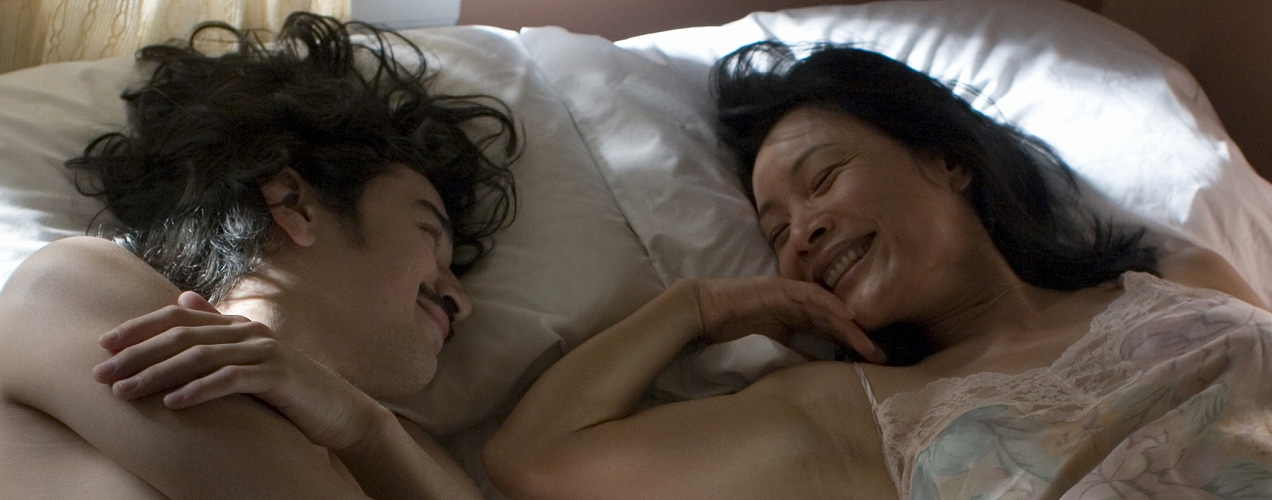
All God’s Children Can Dance
2008 / Robert Logevall > I’m probably not the easiest of people to please when adapting a Haruki Murakami work, but I tried my best to understand Logevall’s vision. Unfortunately, unlike Jun Ichikawa’s work on Tony Takitani, the hour and a half of meandering done by star Jason Lew seems forced and unnecessary. This was never a story that should have been developed this far, and had it been necessary to make it full-length, maybe taking Ichikawa’s direction (where the last half of his film is basically based on one short paragraph) would have been more suited. Otherwise, it mostly bores. On top, Joan Chen’s indie-quirks are pretty hit or miss (the latter being this, the former being Saving Face). Treatment for Murakami’s written word is hard: His novels are too complex, and his short stories are too simple. Either way, Murakami or no Murakami, All God’s Children Can Dance works only on the most superficial levels before receding back into the uninteresting.
Mr. Magorium’s Wonder Emporium
2007 / Zach Helm > Had high hopes for Helm’s debut, having loved his writing in Stranger than Fiction. Throw in Dustin Hoffman, Natalie Portman and Jason Batemen and we should have had a winner, no? Sadly, the film is a complete and utter mess based on ideals that are better fit for a sketch on Sesame Street. While the store in the film brims with imagination, the plot apparently got the short end of that stick.
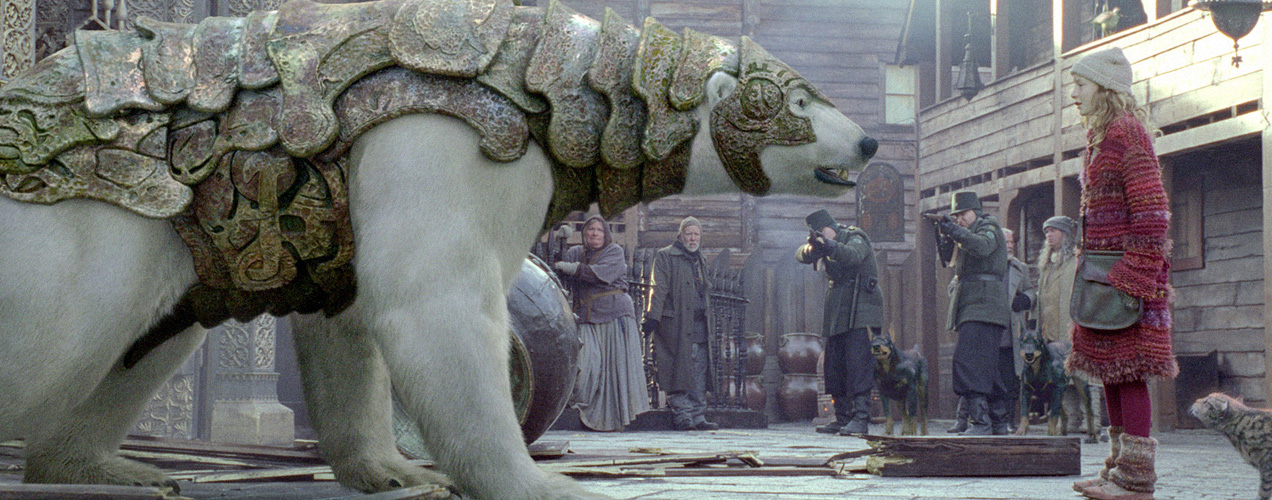
The Golden Compass
2007 / Chris Weitz > Boring and bloated though undeniably gorgeous, it’s no surprise that The Golden Compass failed miserably with both critics and audiences. Once you get past the eye candy, the film lacks the charisma to stay afloat, which is too bad, because now we’ll probably never get to see the story finish. This also marks a serious misstep for Weitz, whose About a Boy was full of heart and wonder.
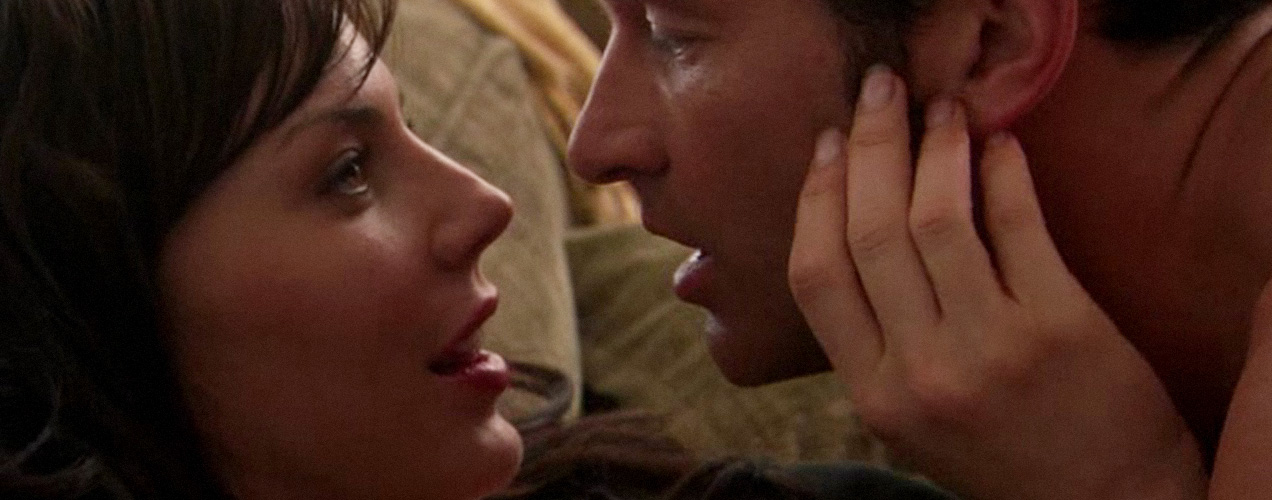
Meet Market
2008 / Charlie Loventhal > I’m not sure why I watched this (Krista Allen, maybe?), but Meet Market is basically a self-congratulating ode to those who believe there’s some sort of sexually charged possibility in picking out the right tomato. It’s not bad by any means, but it’s not memorable either. The kind of metropolitan dating flicks that actually work to the end are the ones that bring something new, not used stories picked up from existing flicks. It’s an interesting effort, no doubt, but one that’s subpar and doomed to be filler on cable television.

